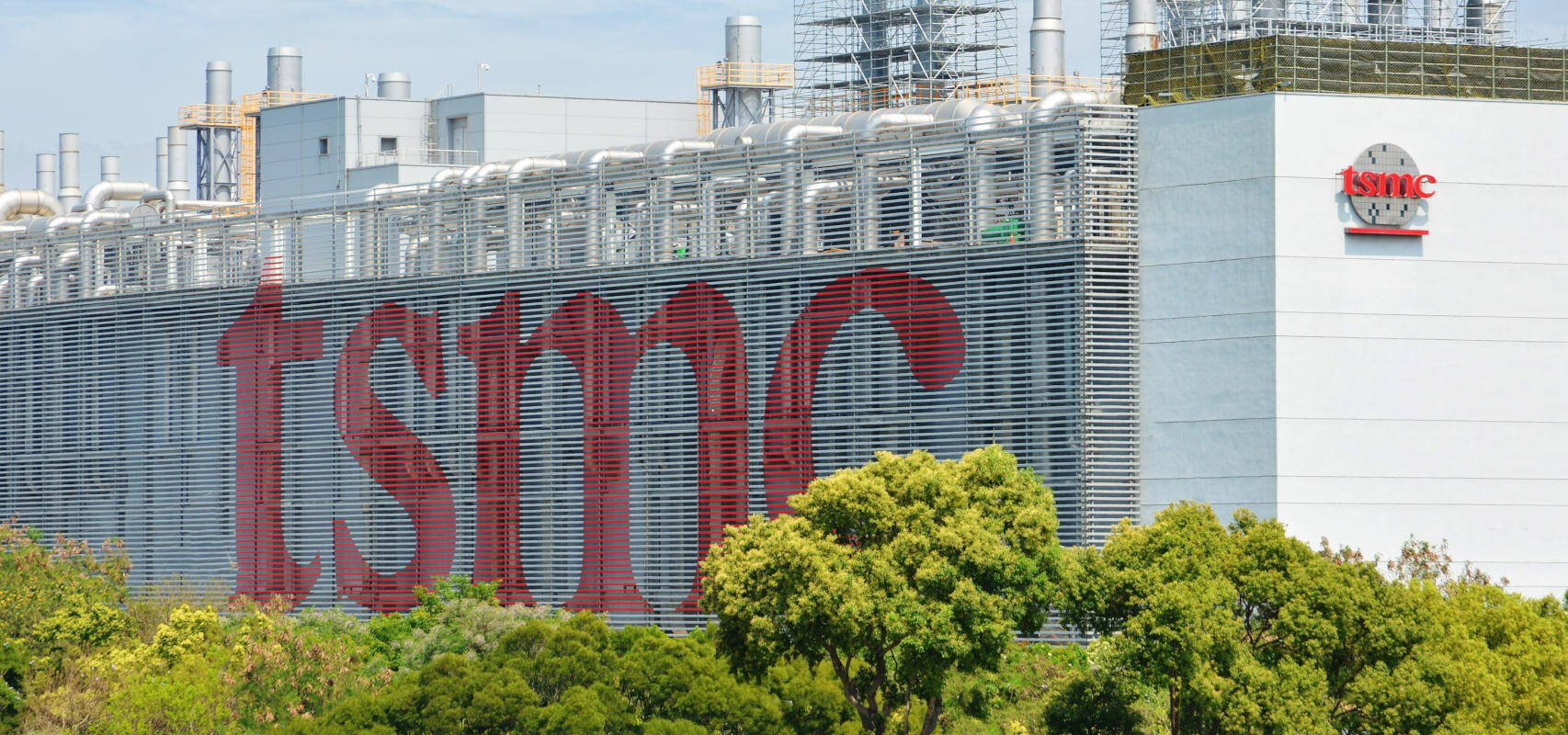TSMC's Outlook Is So Fuzzy It's Reportedly Stalling Fab Machine Deliveries

Faced with uncertain market conditions, Taiwan Semiconductor Manufacturing Company (TSMC) is said to have temporarily delayed delivery of some advanced chipmaking equipment.
Citing unnamed sources familiar with the matter, Reuters reports that the world's largest foundry operator is holding off on equipment deliveries in the "short-term" as a cost cutting measure while it gets a better handle on customer demand.
The Netherlands' ASML may be one of the equipment suppliers affected by the delays. In an interview with Reuters last week ASML CEO, Peter Wennink, said that some orders for its high-end tools had been pushed back , though he stopped short of naming specific customers.
ASML is a crucial supplier for TSMC. The Dutch equipment vendor is the sole proprietor of extreme ultraviolet lithography (EUV) machines used in the production of sub-7nm process nodes for the likes of Nvidia, Apple, AMD, and Qualcomm — all of which contract with TSMC for manufacturing.
The delays come as TSMC grapples with weakening economic conditions and a downturn in semiconductor demand. In July the company saw its Q2 revenues slide 13.7 percent year over year to $15.68 billion.
At the time, executives said they expected growing demand for chips used in high-performance computing applications to drive adoption of its most efficient and performant process nodes in the long term.
However, as TSMC chairman Mark Liu noted in an interview with Nikkei Asia last week, a lack of advanced packaging — not wafer capacity — is holding up the production of accelerators used in HPC and AI applications, including Nvidia's A100 and H100.
Several TSMC customers, including AMD and Nvidia, rely on its chip-on-wafer-on-silicon (CoWoS) packaging technology to stitch compute and or memory dies together. While the company announced a new advanced packaging facility in July, Liu said it'll be at least a year and a half before additional capacity comes online.
- TSMC warns AI chip crunch will last another 18 months
- TSMC gobbles up $430M slice of Intel's IMS Nanofab unit
- After failed takeover, Intel and Tower Semi aren't giving up on the relationship
- Rapidus ramps as construction begins on 2nm wafer fab
In addition to challenges with packaging TSMC has also run into trouble with staffing at its Arizona fab projects. Earlier this summer, the company revealed the first of these facilities wouldn't come online until 2025.
According to TSMC, the holdup was due to a shortage of skilled workers needed to install the complex chipmaking equipment used to mass produce silicon wafers. Whether TSMC's reported decision to push back delivery of chipmaking equipment is related isn't clear. We've reached out to TSMC for comment and will let you know if we hear anything back.
SEMI: expect fab spending to rebound in 2024
The news comes as industry association SEMI reports that softening demand and elevated inventory levels for consumer and mobile devices are likely to drive down global fab equipment spending for front-end facilities by 15 percent year-over-year in 2023.
Like TSMC, SEMI anticipates stronger demand for semiconductors used in HPC and memory will contribute to a rebound in 2024.
"The 2023 decline in equipment investment is proving shallower and the 2024 rebound stronger than expected earlier this year," Ajit Manocha, SEMI president and CEO said in a statement. "The trend suggests the semiconductor industry is turning the corner on the downturn and on a path back to robust growth fueled by healthy chip demand."
Once again Taiwanese foundry operators, including TSMC, are expected to drive the majority of fab equipment spending next year, followed by Korea, China, the US, and Europe. ®
From Chip War To Cloud War: The Next Frontier In Global Tech Competition
The global chip war, characterized by intense competition among nations and corporations for supremacy in semiconductor ... Read more
The High Stakes Of Tech Regulation: Security Risks And Market Dynamics
The influence of tech giants in the global economy continues to grow, raising crucial questions about how to balance sec... Read more
The Tyranny Of Instagram Interiors: Why It's Time To Break Free From Algorithm-Driven Aesthetics
Instagram has become a dominant force in shaping interior design trends, offering a seemingly endless stream of inspirat... Read more
The Data Crunch In AI: Strategies For Sustainability
Exploring solutions to the imminent exhaustion of internet data for AI training.As the artificial intelligence (AI) indu... Read more
Google Abandons Four-Year Effort To Remove Cookies From Chrome Browser
After four years of dedicated effort, Google has decided to abandon its plan to remove third-party cookies from its Chro... Read more
LinkedIn Embraces AI And Gamification To Drive User Engagement And Revenue
In an effort to tackle slowing revenue growth and enhance user engagement, LinkedIn is turning to artificial intelligenc... Read more

